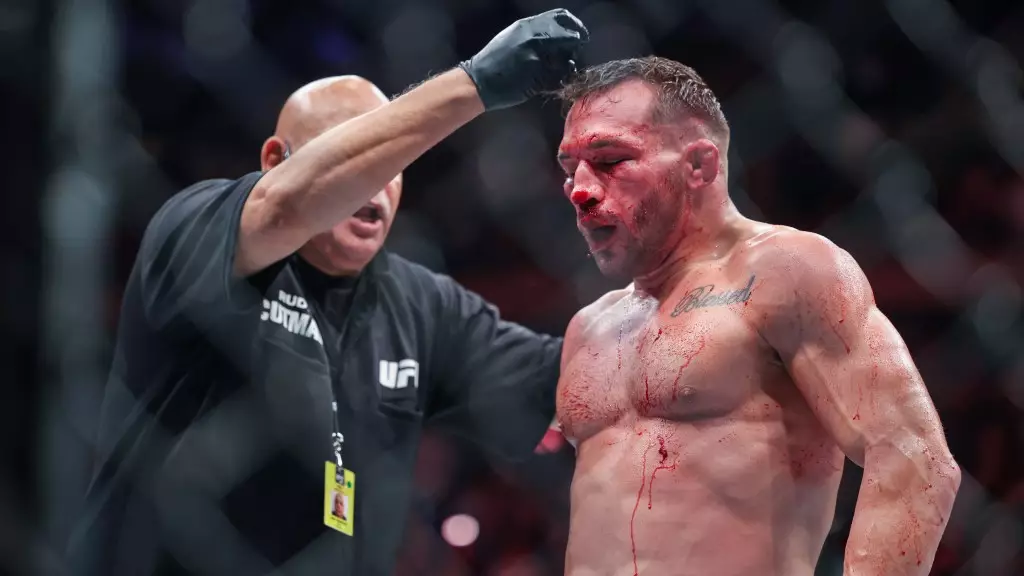Michael Chandler, a name that has echoed within the mixed martial arts community, currently finds himself at a crossroads. After a less-than-stellar showing in his rematch against Charles Oliveira at UFC 309, where he faced a dominant opponent and only rallied late in the fight, Chandler’s MMA career has come under serious scrutiny. With a record of 2-4 in the UFC and four losses in his last five fights, Chandler’s presence in the lightweight division is increasingly questioned. Notably, his singular victory during that time was an impressive knockout against Tony Ferguson, who is similarly grappling with a series of defeats.
Chandler’s recent performances have raised eyebrows, particularly regarding his speed and wrestling ability. In a division that thrives on agility and technical skill, showing signs of sluggishness can be detrimental. While Chandler has historically been known for his explosive fighting style, many are now interpreting his latest fight as a sign that he may be on the decline.
Comparisons to Tony Ferguson
John McCarthy, a respected figure in the MMA community, has drawn a stark comparison between Chandler and Tony Ferguson. He asserts that Chandler appears to have reached a tipping point in his career akin to that of Ferguson, who once enjoyed an impressive twelve-fight winning streak but has now faced eight consecutive defeats. This type of decline is alarming and suggests a potential trajectory that could lead to a similar fate for Chandler if he does not make significant changes.
The analogy highlights the unforgiving nature of the lightweight division, a space where fighters can quickly fall from grace if they do not maintain peak performance. Chandler’s recent inconsistency has led many to wonder who he could realistically compete against moving forward. McCarthy’s assessments are not just conjecture; they reflect a growing consensus that Chandler may be struggling to find his footing in an intensely competitive environment.
The Shadow of McGregor
Compounding Chandler’s challenges is his prolonged wait for a fight with Conor McGregor, an endeavor that has drawn criticism. Such layoff, combined with his recent performances, raises questions about his preparedness to face elite competition. After his loss to Oliveira, Chandler made headlines by calling out McGregor, but this may not be the strategic move he hoped for. McCarthy suggests that fighters like Dustin Poirier are unlikely to consider a rematch with Chandler due to their previous encounters and similar concerns about his fighting tactics.
Chandler’s desire for a high-profile fight could actually hinder his chances to rebuild his career. The more he pursues a fight with McGregor, the more he risks further alienating potential opponents who are wary of facing a fighter who is experiencing a decline.
Michael Chandler’s future in the octagon remains precarious, as he struggles to regain his elite status in the lightweight division. The harsh reality is that the landscape of MMA is continuously evolving, and fighters who do not adapt risk being left behind. As Chandler seeks to revitalise his career, he must reflect on recent performances and consider strategic changes to ensure he does not mirror the unfortunate trajectory of fighters like Tony Ferguson. How he navigates the road ahead will ultimately determine if he can reclaim his position as a formidable contender in one of the sport’s toughest divisions.

